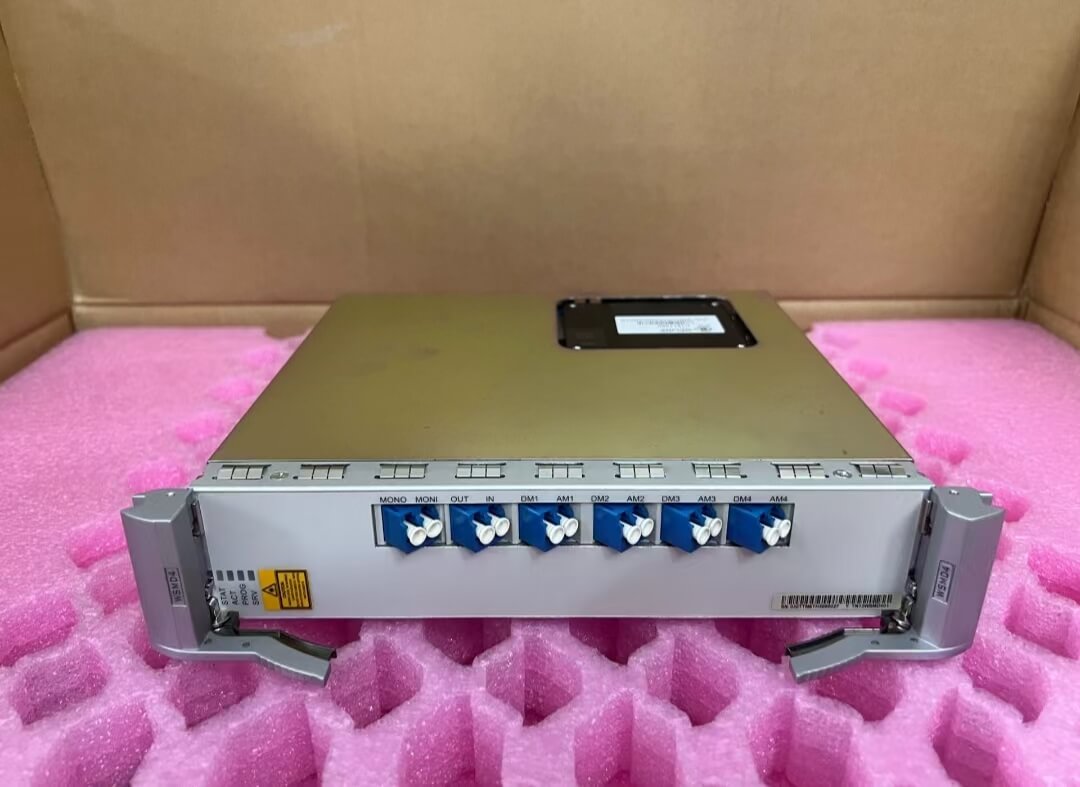Link You To Professional Networks

TN13WSMD401 Is Huawei OSN 9800 Reconfigurable Optical Add/Drop Multiplexer Boards

Huawei OSN 9800 Reconfigurable Optical Add/Drop Multiplexer Boards TN13WSMD401 Overview
WSMD4: 4-Port Wavelength selective multiplexing and Demultiplexing board
The WSMD4 board has four functional versions: TN11, TN12, TN13, and TN17. Together these four versions are referred to as the WSMD4 board unless otherwise specified.
As a ROADM unit, the WSMD4 board is used with optical multiplexer boards, optical demultiplexer boards, or other OADM boards to perform wavelength grooming at DWDM network nodes.
The WSMD4 board supports wavelength broadcast, dynamic wavelength grooming, in-service monitoring of optical performance, and alarms and performance events monitoring.
The WSMD4 board consists of an RDU module, WSS module, temperature and optical power detection module, control and communication module, and power supply module.
The WSMD4 board is a double-width board (requiring two slots).
Function and Feature Of TN13WSMD401
|
Function and Feature |
Description |
|
Basic function |
Supports wavelength broadcast and dynamic add/drop of wavelengths from/through any port on ring or chain networks. With the wavelength broadcast function, this board can broadcast the main channel signal received through the IN port in four directions (through the DM1-DM4 ports). In addition, this board can receive any locally added single wavelength or wavelength combination through any of the AM1-AM4 ports. |
|
WDM specification |
Supports the DWDM specification. |
|
Spectrum application |
Supports signals with a 100 GHz channel spacing.
Supports signals with a 50 GHz channel spacing.
The signals have continuous n x slice GHz spectrums (one slice is equal to 50 GHz, and n is an integer ranging from 1 to 8) to meet the bandwidth requirements of high-rate services. When multi-rate services are transmitted together, Gridless flexibly allocates bandwidth to improve the bandwidth utilization efficiency. |
|
In-service optical performance monitoring |
Provides two in-service monitoring ports. Each of these two ports connects to an optical spectrum analyzer or spectrum analyzer unit to monitor the signal power performance without affecting traffic. |
|
Alarm and performance event monitoring |
Detects the optical power and reports the alarms and performance events for the board. |
|
Optical power adjustment |
Supports power adjustment for any locally added wavelengths. |
|
Optical-layer ASON |
Supported by the TN11WSMD401, TN12WSMD4, TN13WSMD4 and TN17WSMD4. |


